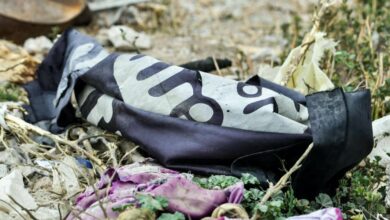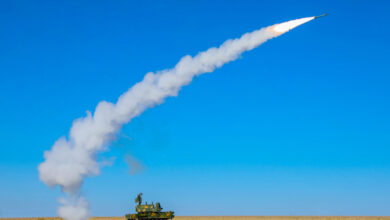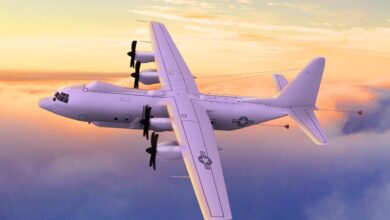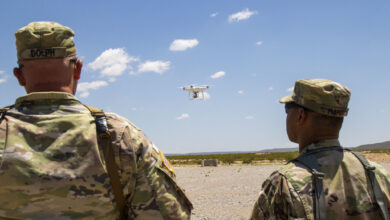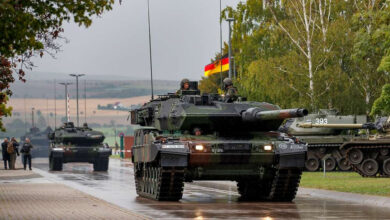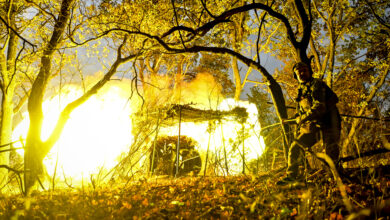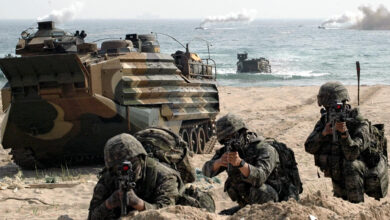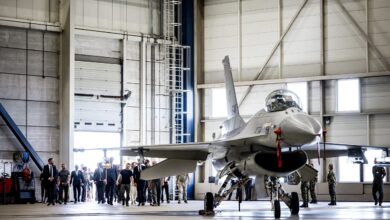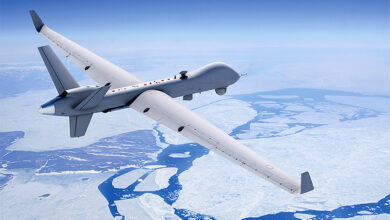Sahel Allies, France Highlight Progress in Anti-Jihad Campaign
Sahel countries and their ally France on Tuesday vowed to press ahead with a tactical shift in their campaign against an eight-year-old jihadist insurgency, saying the change had notched up substantial gains although major challenges also remain.
After a summit in the Mauritanian capital Nouakchott to review the new strategy at the six-month mark, French President Emmanuel Macron said there had been “spectacular results.”
“We are convinced that victory is possible in the Sahel, and that it is decisive for stability in Africa and Europe,” he said. “We are in the process of finding the right path thanks to the efforts that have been made over these last six months.”
The one-day summit gathered the presidents of Burkina Faso, Chad, Mali, Mauritania, and Niger, as well as their former colonial ruler France.
It was called to take stock of a more aggressive approach, driven by a string of setbacks last year crowned by the loss of 13 French soldiers in a helicopter crash.
Under the change, France deployed an extra 500 troops to its Barkhane anti-jihad force in the Sahel, bringing its complement to 5,100.
Since then, the jihadists have continued to carry out attacks almost daily, but they also lost a key leader to a French raid and are fighting internally, according to security sources.

Coalition forces have focussed on the “three-border region,” a hotspot of jihadism where the frontiers of Burkina, Niger, and Mali converge.
“Areas have been taken back from the terrorist groups (and) the armies have redeployed,” said Macron, adding that the tactics “have shifted the dynamic.” “We now have to consolidate this dynamic and strengthen it… The ground that we have recovered will not be given back,” he warned.
In contrast, summit host President Mohamed Ould Cheikh El Ghazouani of Mauritania earlier sounded a more cautious note, saying there had been “significant progress” but this was “insufficient in the face of the mounting challenges that we have to meet.” “Violent extremism in all its forms continues to hit several zones… and is expanding in a worrying manner,” he said.
Tactical Shift
The insurgency kicked off in northern Mali in 2012, during a rebellion by Tuareg separatists that was later overtaken by the jihadists.
Despite thousands of UN and French troops, the conflict spread to central Mali, neighboring Burkina Faso, and Niger, stirring feuds between ethnic groups and triggering fears for states further south.
Thousands of soldiers and civilians have been killed, hundreds of thousands of people have fled their homes, and the economies of the three countries, already among the poorest in the world, have been grievously damaged.
Macron arrived for a round trip from Europe for the summit, with representatives from the UN, African Union, and European Union in attendance. The leaders of Spain, Germany, and Italy also joined, by video link or in person.
The meeting marked the first time that Sahel allies had gathered physically since the start of the coronavirus crisis.
The campaign in the three-border region is targeting an Islamic State-affiliated group led by Abou Walid al-Sahraoui.
On June 5, French forces in northern Mali, helped by a US drone, killed Abdelmalek Droukdel, the notorious head of al-Qaeda in the Islamic Maghreb (AQIM).
And in a new development, jihadists respectively linked to al-Qaeda and Islamic State have clashed several times since the start of the year in Mali and Burkina Faso, after long steering clear of one another, according to security experts.
Troubled Region
Despite this, problems in the Sahel run deep.
Local armies are poorly equipped and under-funded and in some areas, essential services and the presence of government have evaporated.
Rights groups say troops are to blame for hundreds of killings and other abuses of civilians — a concern that the summit addressed by warning of “exemplary punishment” if such cases are confirmed.
Staunch French ally Chad has yet to fulfill a promise to send troops to the three-border region, and a much-trumpeted initiative to create a joint 5,000-man G5 Sahel force is making poor progress.
In Mali, anger at insecurity has fuelled discontent over coronavirus restrictions and the outcome of elections, creating a political crisis for President Ibrahim Boubacar Keita.
Both Burkina and Niger are due to hold presidential elections by year’s end, fuelling concerns about the outcome.
On Monday, the UN Security Council voted unanimously to extend the mandate of the 13,000-troop MINUSMA peacekeeping force in Mali for another year, to June 30, 2021.
The next summit of the Sahel allies was set for early 2021.



